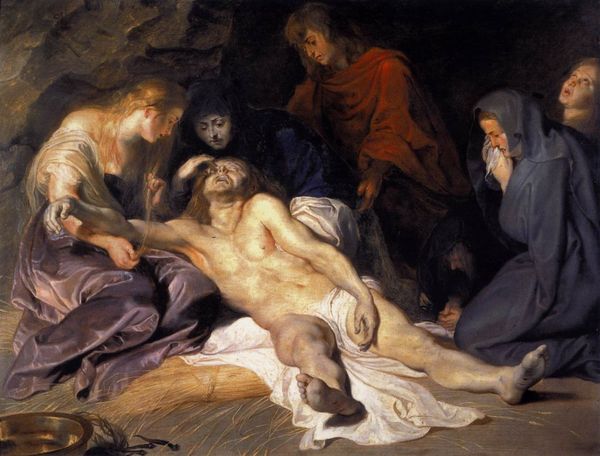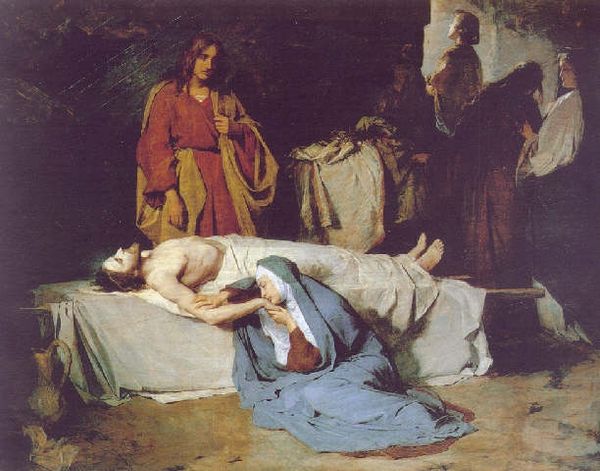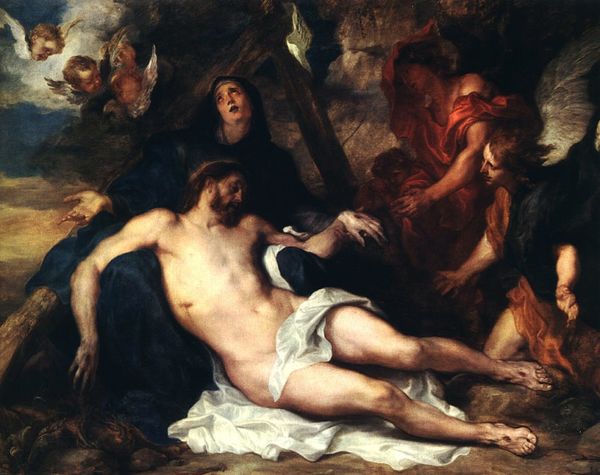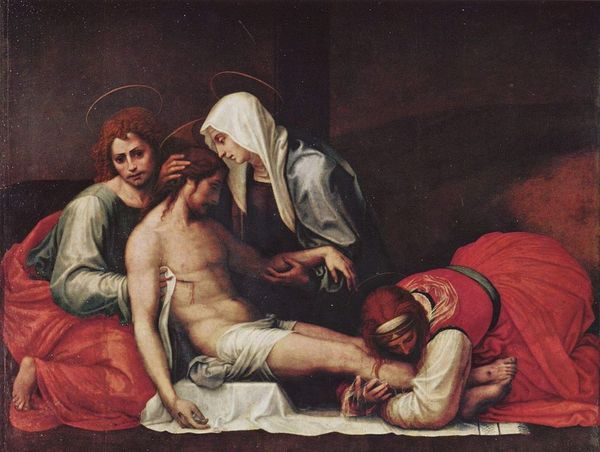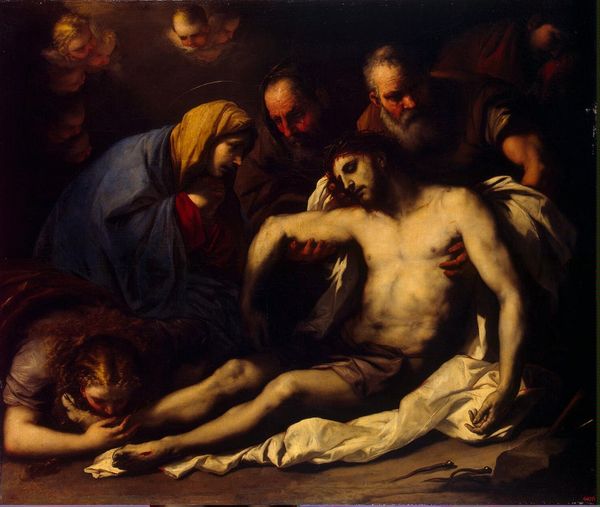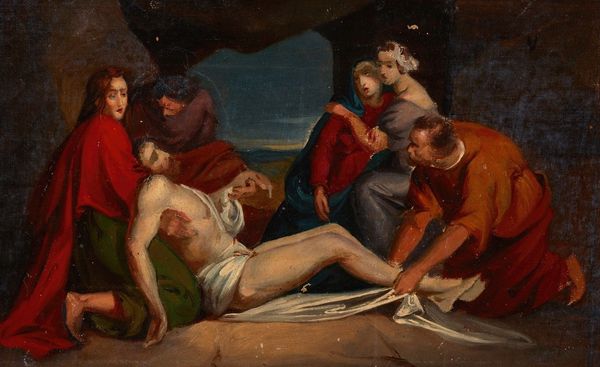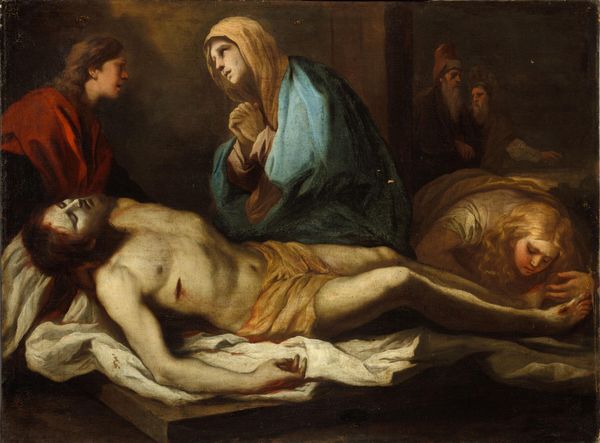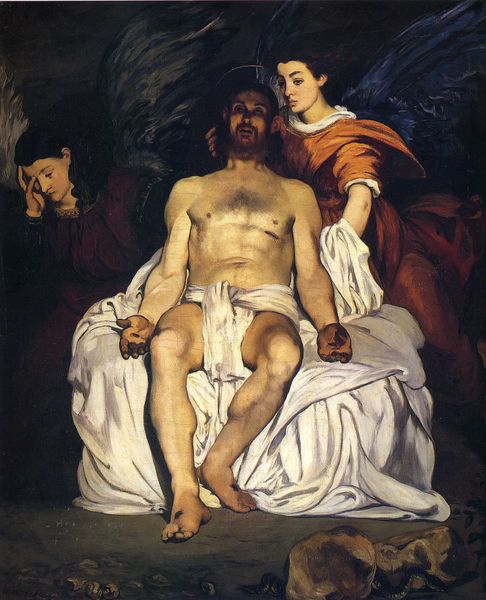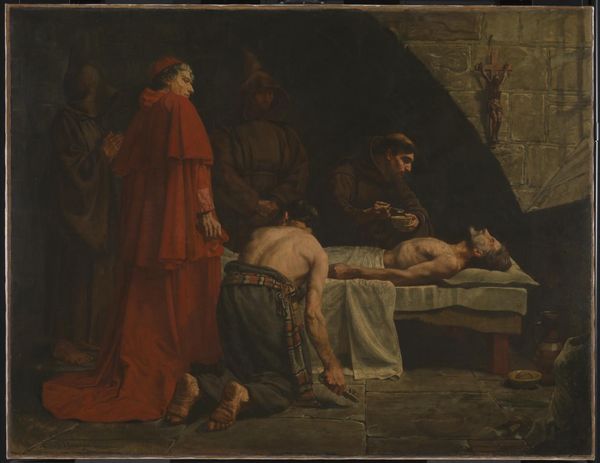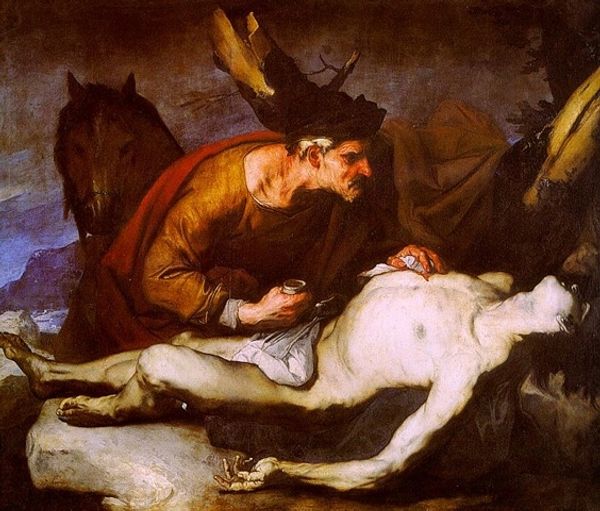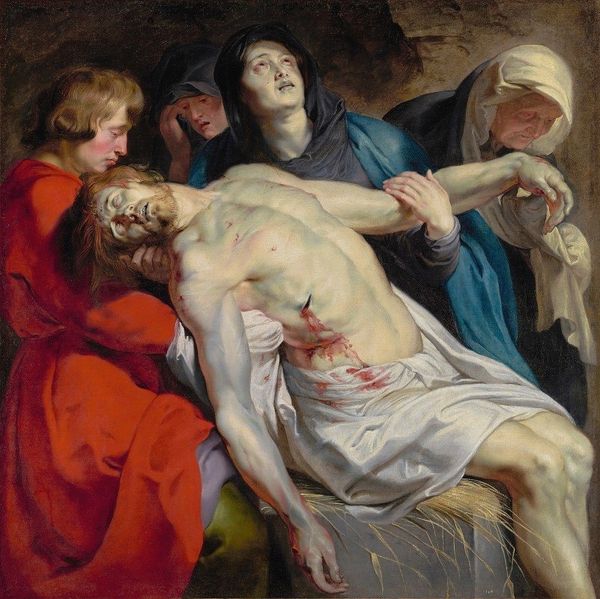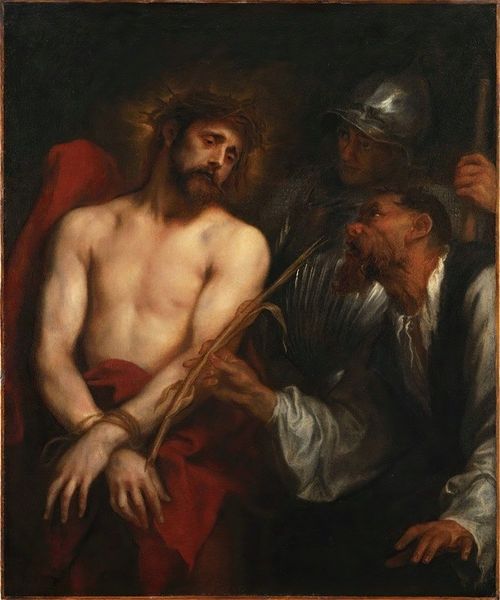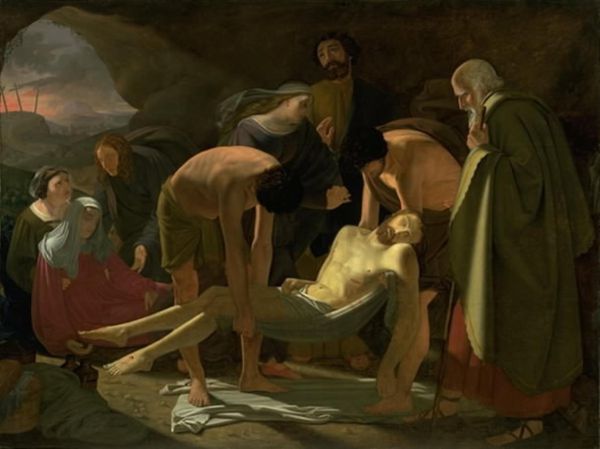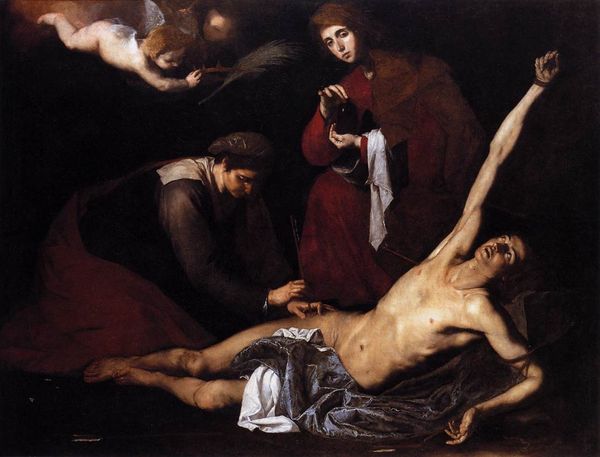
oil-paint
#
portrait
#
oil-paint
#
landscape
#
figuration
#
oil painting
#
human
#
genre-painting
#
history-painting
#
academic-art
#
portrait art
#
realism
Copyright: Public domain
Théodule Ribot painted this biblical scene, "The Good Samaritan," sometime in the mid-19th century. The story is extracted from the Gospel of Luke, in which a traveler is robbed, beaten, and left for dead. Notice how Ribot uses stark contrasts of light and shadow, evoking the gritty realism popular in France at this time. This artistic approach suggests an appeal for social reform by depicting compassion for the poor and the marginalized. Consider the historical context: Ribot's France was grappling with industrialization, class divisions, and a growing secularism. Religious narratives were often reinterpreted through a lens of social justice. Ribot’s artistic choices serve as a poignant commentary on the moral obligations of society towards its most vulnerable members. To truly appreciate Ribot's work, we need to understand the social fabric of 19th-century France, exploring everything from church records to political pamphlets. The meaning of the art lies in understanding the forces at play during its creation.
Comments
No comments
Be the first to comment and join the conversation on the ultimate creative platform.
